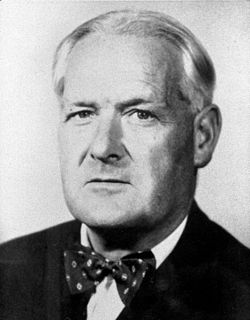A Quote by Jean Piaget
Scientific knowledge is in perpetual evolution; it finds itself changed from one day to the next.
Related Quotes
Groups do not have experiences except insofar as all their members do. And there are no experiences... that all the members of a scientific community must share in the course of a [scientific] revolution. Revolutions should be described not in terms of group experience but in terms of the varied experiences of individual group members. Indeed, that variety itself turns out to play an essential role in the evolution of scientific knowledge.
In scientific thought, the concept functions all the better for being cut off from all background images. In its full exercise, the scientific concept is free from all the delays of its genetic evolution, an evolution which is consequently explained by simple psychology. The virility of knowledge increases with each conquest of the constructive abstraction.
Molecular evolution is not based on scientific authority. . . . There are assertions that such evolution occurred, but absolutely none are supported by pertinent experiments or calculations. Since no one knows molecular evolution by direct experience, and since there is no authority on which to base claims of knowledge, it can truly be said that . . . the assertion of Darwinian molecular evolution is merely bluster.
All scientific work is incomplete - whether it be observational or experimental. All scientific work is liable to be upset or modified by advancing knowledge. That does not confer upon us a freedom to ignore the knowledge we already have, to postpone action that it appears to demand at a given time. Who knows, asks Robert Browning, but the world may end tonight? True, but on available evidence most of us make ready to commute on the 8:30 next day.
The fact that these scientific theories have a fine track record of successful prediction and explanation speaks for itself. (Which is not to say that I don't directly discuss the work of those philosophers who would disagree.) But even if we grant this, many will argue that scientific knowledge in humans, and, indeed, reflective knowledge in general, is quite different in kind from the knowledge we see in other animals.
We see not only thought as participating in evolution as an anomaly or as an epiphenomenon; but evolution as so reducible to and identifiable with a progress towards thought that the movement of our souls expresses and measures the very stages of progress of evolution itself. Man discovers that he is nothing else than evolution become conscious of itself.
McIntosh is persuasive in his arguments that the scientific facts of evolution cannot stand alone ... science shows that historical evolution, whatever its contingencies, is itself on a trajectory of values development. McIntosh has well-researched his sources and integrated them with seminal insight.
In short, evolution is as close to being a scientific fact as is possible for any theory, given that science is open - ended and no one can predict with certainty what may change in the future. The prospect that evolution by natural selection, at least as a broad mechanism, will be overthrown in the future is about as likely as the prospect of finding out some day that the Earth is really flat. Unfortunately, those who regard these scientific facts as a threat to faith have chosen to distort and misrepresent them to the public.
The battle over the validity of evolution has been publicly posed as a scientific one. However, you will find little sign of it in scientific journals, where such quarrels as exist are over details, not the basic concept... Evolution has proved so useful as a paradigm for the origin and structure of life that it constitutes the foundation of the sciences of biology and medicine.



































